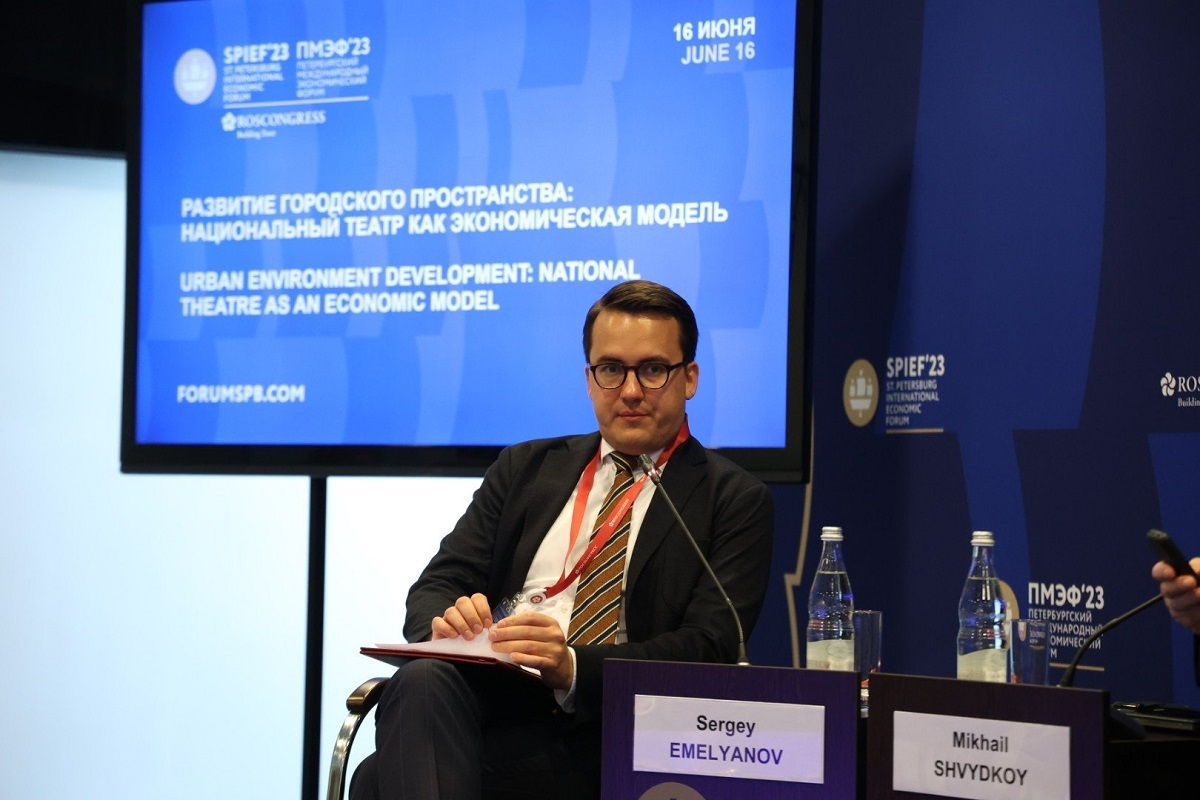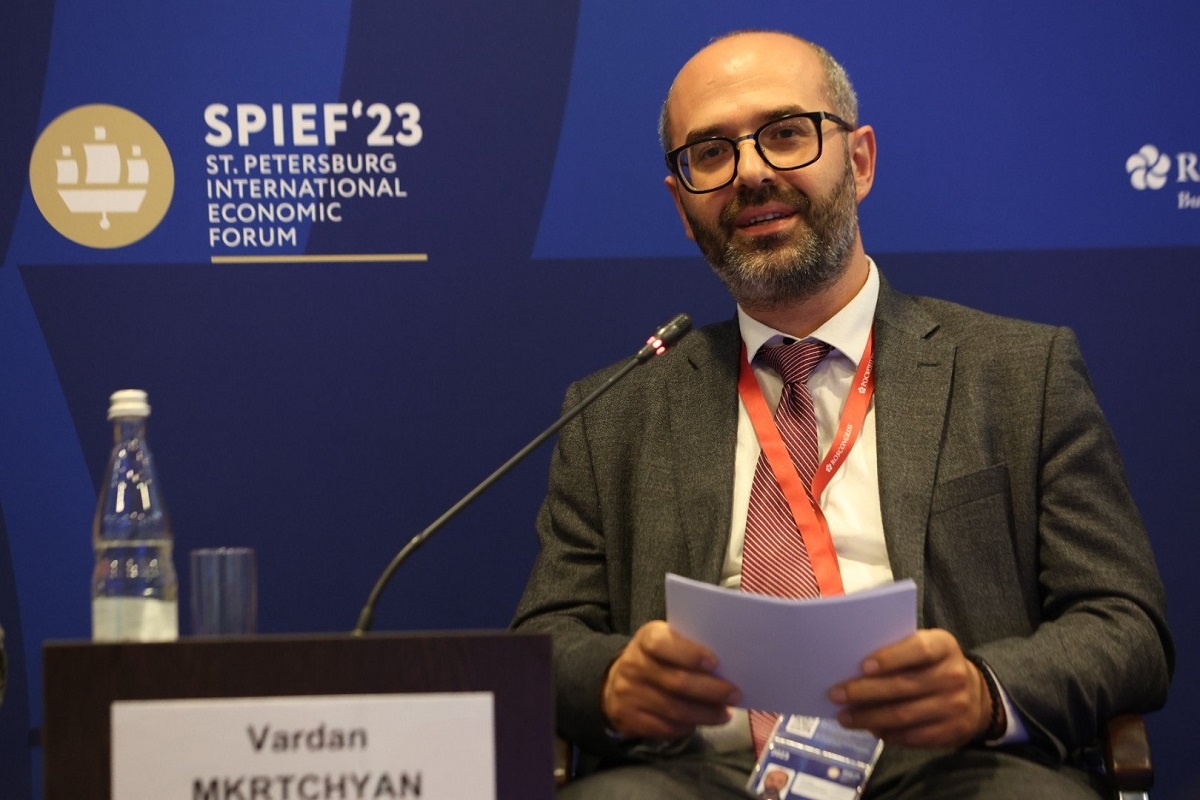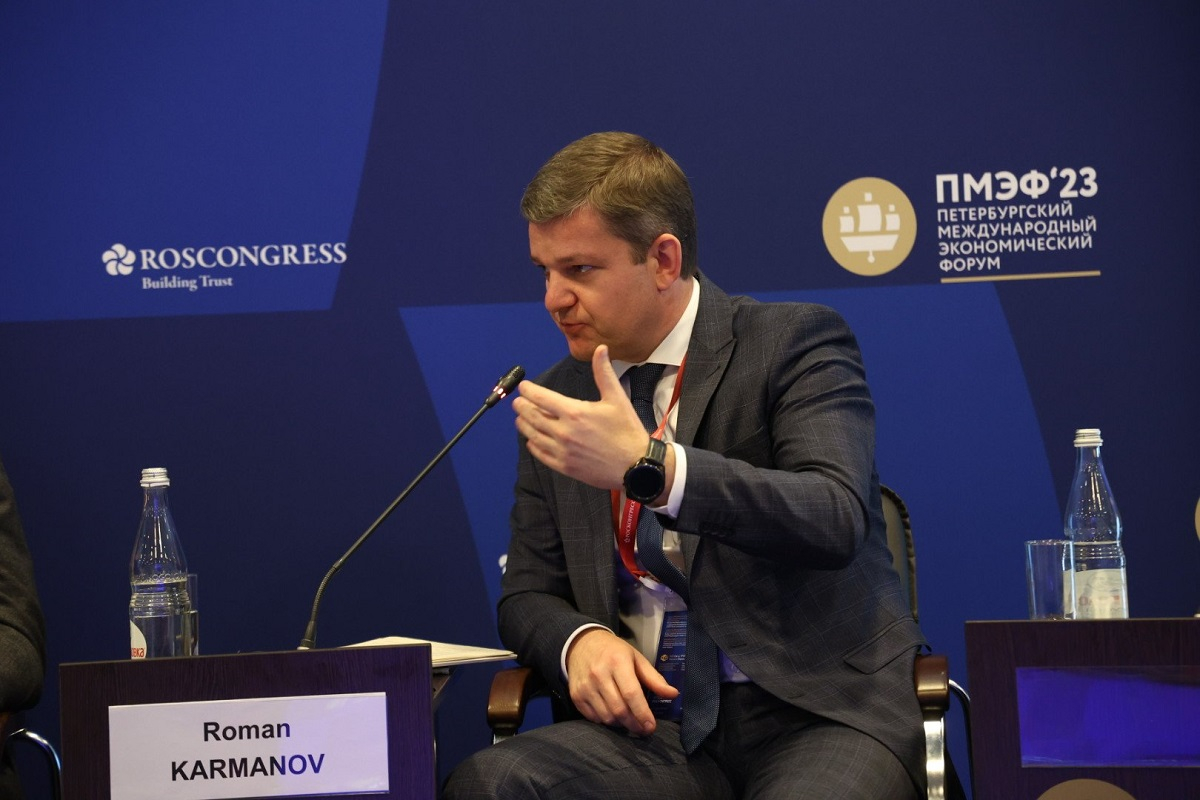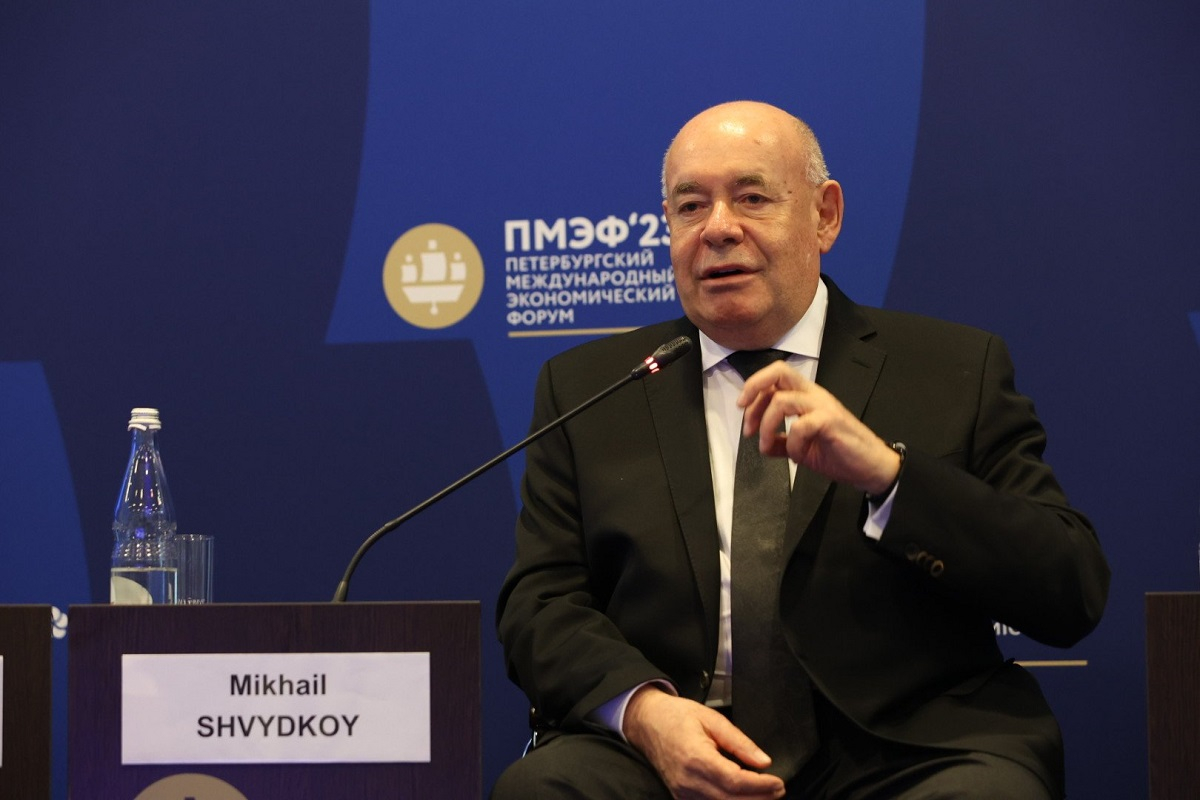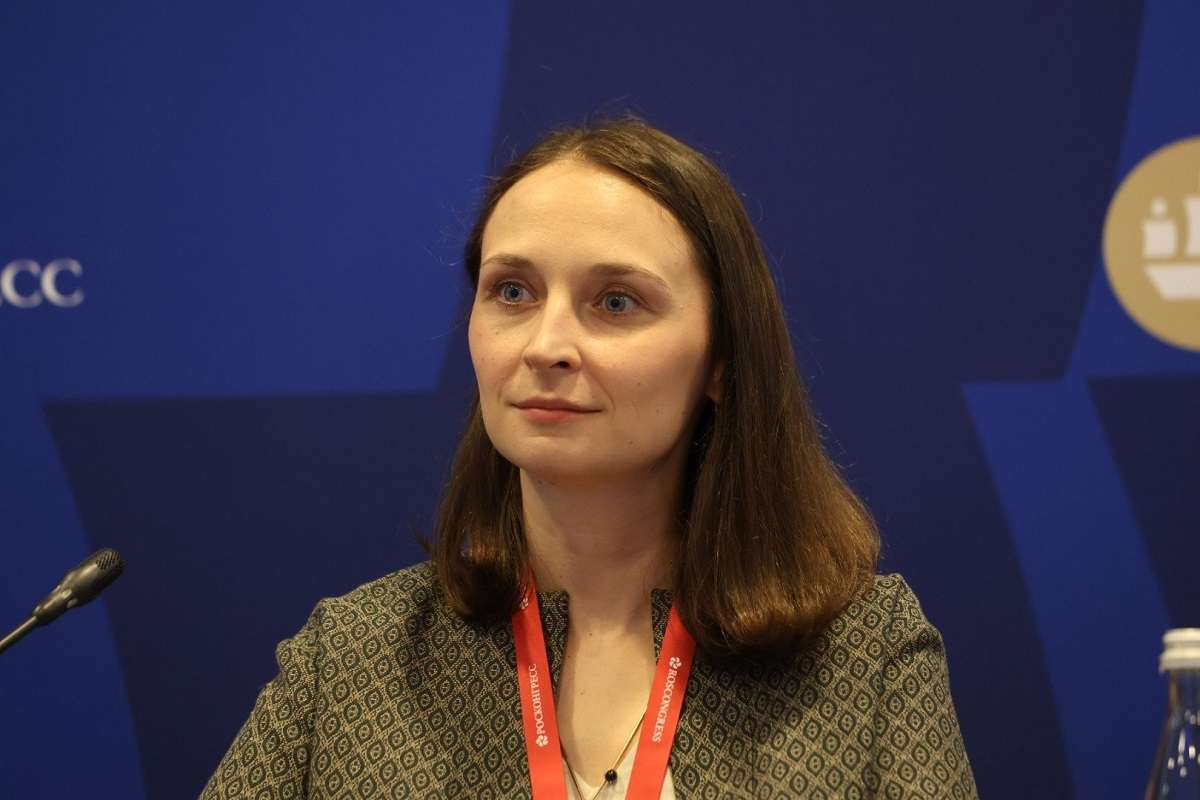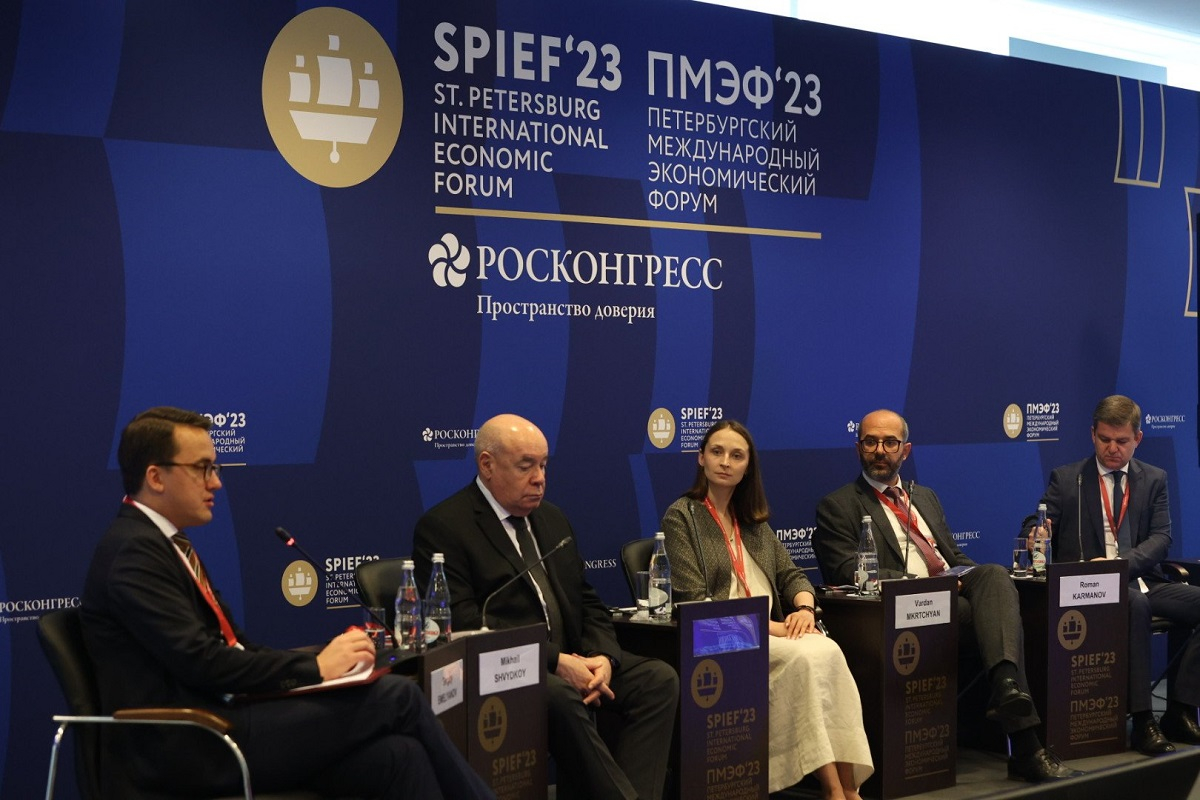The role of theatre as a driving force in the transformation of the cultural landscape of Russian regions discussed at the St Petersburg International Economic Forum
The St Petersburg International Economic Forum (SPIEF) has held the panel session ‘Urban Environment Development: National Theatre as an Economic Model’. The panel, initiated by the National Drama Theatre of Russia (Alexandrinsky Theatre) and St Petersburg University, focused on changing classical approaches to theatre management and integrating a cultural institution with business.
The panellists included: Mikhail Shvydkoy, Special Representative of the President of the Russian Federation for International Cultural Cooperation; Roman Karmanov, Director General of the Presidential Foundation for Cultural Initiatives; Anastasia Yarmosh, Vice-Rector for Strategic Development and Partnership at St Petersburg University; and Vardan Mkrtchyan, Director of Gabriel Sundukyan National Academic Theatre. The moderator was Sergei Emelianov, Managing Director of the Alexandrinsky Theatre.
By revising management approaches in favour of modernisation and streamlining of operational processes, leading cultural institutions are primarily addressing staffing challenges.
Sergei Emelianov, Managing Director of the Alexandrinsky Theatre
‘Who will build new economic models for the arts sector? What kind of teams should there be that will adapt the best business practices and at the same time preserve the creative core of institutions? These are questions whose relevance is assessed equally for both regional and federal institutions,’ Sergei Emelianov noted during the discussion.
According to Sergei Emelianov, colleagues from partner countries are engaged in solving similar challenges. Each top manager in the sphere of culture and art has their own answers to these questions: from cooperation with leading schools of thought and training personnel from scratch, playing the long game, to the implementation of educational projects that solve personnel challenges on the ‘here and now’ principle with the support of grants.
In 2022, on the margins of the St Petersburg International Economic Forum, the University signed a cooperation agreement with the Alexandrinsky Theatre. The main focus of the agreement was the implementation of academic programmes in the field of art management and joint creative projects.
Anastasia Yarmosh spoke about the implementation of the unique project ‘National Theatre School’. Last year, it was launched by St Petersburg University and the Alexandrinsky Theatre with the support of the Presidential Foundation for Cultural Initiatives to jointly train a new generation of creative managers for theatres in the regions of Russia. The first season of the project enabled the training of more than 450 theatre managers from Russia and partner countries: Republika Srpska, Armenia, and Turkmenistan. Each graduate received a certificate confirming the completion of the St Petersburg University academic programme.
According to Anastasia Yarmosh, when training theatre managers today, it is necessary to understand that this should be an expert who understands the essence of what they are working with − the nature of performing arts and performance itself, but at the same time they should feel the economy of space. The managers of the national theatres of the constituent entities of the Russian Federation and of the cultural institutions beyond the borders of the Russian Federation will have the opportunity to look at the subject of their activity in a different way while studying in this short intensive academic programme.
For example, during the training, they learn that it is not necessary to work only on selling tickets for performances as this is the goal of a box office manager, a marketer, and a PR person. The task of a cultural and theatre manager is to take a broader view of the needs and demands of today’s audiences and to try, in an interdisciplinary partnership, to create an added value, an additional product, which may be able to attract audiences who were previously unwilling to come to the national theatre.
Anastasia Yarmosh, Vice-Rector for Strategic Development and Partnership of St Petersburg University
‘This is a huge audience. We would show them theatre in a different way, introduce them to lighter formats, and then they would look at the main stage anyway,’ said Anastasia Yarmosh, Vice-Rector for Strategic Development and Partnership of St Petersburg University.
In conclusion, Anastasia Yarmosh stressed the need to organise systematic training of new personnel who will not lose the sense of national cultural values and will be able to present them to the audience. This is the task facing the new generation of cultural managers who will give impetus to the development of the country’s national theatre.
During the panel discussion, the participants also sought answers to the questions of: how contemporary theatres in Russia and partner countries can restructure their operations along the lines of major players in the business community; and whether it is possible to preserve the identity of the national theatre and at the same time integrate the international experience of the classical school of contemporary management into the performing arts.


